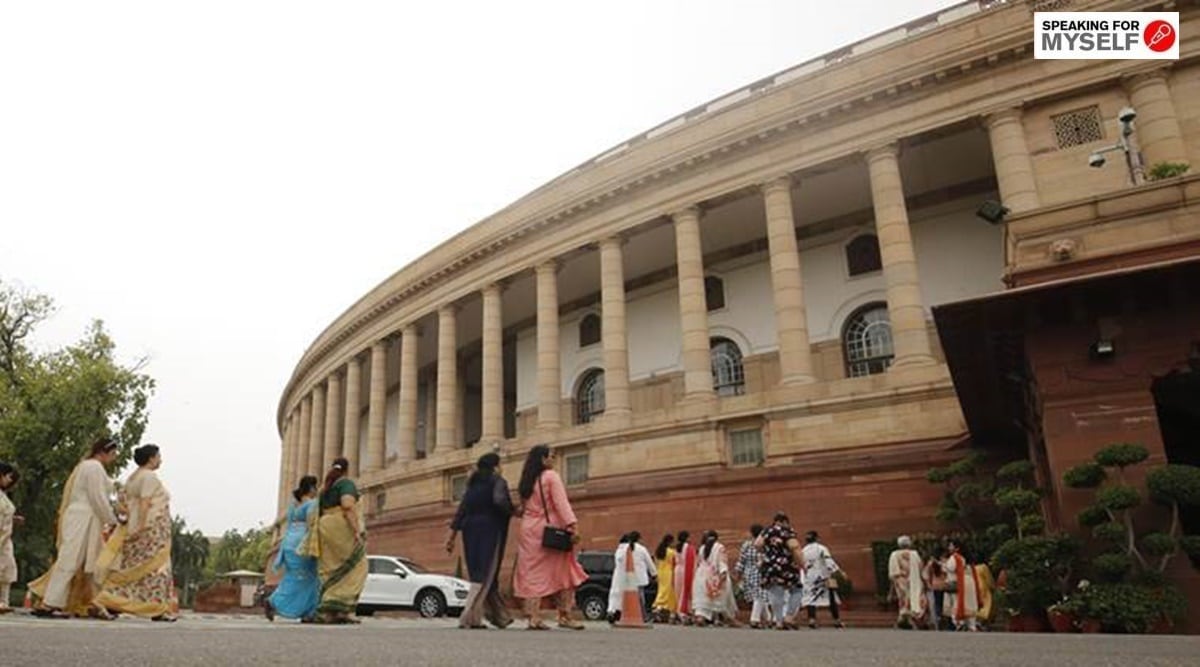Opinion Why an MP needs a legislative assistant
They can provide the bandwidth to research a wider range of issues. Legislative assistance doesn't only benefit lawmakers. It is also a platform that allows the youth to engage in the public policy process
 In India, any legislation or policy decision has far-reaching implications because of the scale involved. (File)
In India, any legislation or policy decision has far-reaching implications because of the scale involved. (File) Indian parliamentary democracy is a unique experiment that has stood the test of time. Almost 800 MPs across the two houses — Lok Sabha and Rajya Sabha — represent the aspirations of more than 130 crore Indians. The scale of operations makes it imperative that they should have professional assistance in going about their parliamentary interventions. Hence, there is a pressing need for legislative assistants.
A legislative assistant (LA) is a professional who works with a Member of Parliament (MP), conducts research for their interventions, and drafts legislation. They may also handle communication, take meetings with stakeholders and brief the MP on issues of political and policy significance.
So, LAs shoulder the crucial responsibility of ensuring high-quality debate and deliberation in the House through their research, and taking up issues of importance to create a positive impact. In the European Union, the Parliament authorises Members an earmarked budget that they can use to hire assistants. In the United States, their role may extend to tallying vote counts on matters in the House as well.
In India, however, the role is yet to be institutionalised and an ecosystem is yet to be created to promote the same. Even though MP offices are reimbursed for logistical/office costs, the amount is not enough to avail legislative assistance. A trained aide can help their Member of Parliament understand the intricacies of each bill brought up in the House. Moreover, given their training, they can understand the political context of the office they’re working in and make the best use of different interventions.
Beyond Parliament as well, an LA can help a public representative engage with various policy advocacy groups, stakeholders, and constituency-specific issues. This leads to a more informed understanding on the part of the MP, thus raising the quality of debate both inside and outside Parliament.
Legislative assistance as a concept doesn’t only benefit lawmakers. It is perhaps one of the few platforms that allows the youth to engage in the process of public policy. Its philosophical significance aside, young people benefit from the rich experience that an MP office has to offer. In the US, Legislative Assistants have a more or less institutionalised trajectory. They may go on to become Legislative Directors, Chiefs of Staff, etc. Former US Vice-President Dick Cheney started his career as an intern with then-Congressman William Steiger before rising up the ranks to hold constitutional office.
In India, any legislation or policy decision has far-reaching implications because of the scale involved. For instance, any youth policy would have to be seriously thought through because 52 per cent of the country is below the age of 30, which is approximately 65 crore Indians. Half-baked legislation will only serve to do more harm than good.
An average session of Parliament goes on for 21 days. Each MP can file five and seven questions per day in the Lok Sabha and the Rajya Sabha respectively. Questions are one of the most important interventions in Parliament that hold the government accountable. On average, an MP can file 100 questions per session. It is a laborious task that requires minute, topical research and drafting skills so that the question gets balloted and answered. Aside from the content, there are specific timelines to be adhered to, while filing questions amidst portal glitches and other constraints. Keeping track of answers once the questions have been filed and using that information in further interventions such as articles, zero hours, etc also require regular engagement with the portal and is a full-time job. Since there is advance notice for filing questions, MPs can still perform this function without research staff.
However, other interventions like supplementary questions have to be prepared in real-time. The answers to starred questions are only published on the website the morning of when the questions are allotted, leaving barely two hours to frame them.
Parliament legislates on a diverse set of issues ranging from wildlife to data privacy. MPs must understand the nuances of all these topics, but cannot be expected to have wide-ranging expertise. Legislators with research staff can reach out to domain experts to make informed interventions in Parliament.
In most MP offices, their Personal Assistant or Personal Secretary does the framing and filing of interventions. That is over and above party work and other administrative responsibilities. Given its far-reaching consequences, some of this research work can be delegated to dedicated staff. Many MPs hire freelancers for research work on a session-to-session basis.
The Legislative Assistants to Members of Parliament (LAMP) Fellowship was a unique experiment born out of this vacuum. Fifty young professionals, from various backgrounds such as law, science, commerce, arts, etc, are selected from around 5,000 applicants and are assigned to work with 50 MPs across different political parties. From July 2022 – March 2023, the fellows collectively framed 8,500 questions, 950 issues in the form of notices and drafted 90 private members’ bills and resolutions for the reference of their MPs. One of the most significant contributions of a LAMP Fellow was the Rights of Transgender Persons Bill, 2014 — passed in 2015 — which was the first Private Members’ Bill to be passed in the Rajya Sabha since 1970. The success of this programme can be extrapolated to indicate the potential benefit of institutionalising legislative aid for members of Parliament.
Parliament must start such a programme for all its members, wherein they are provided requisite funds to hire legislative aides and exemplify participatory democracy in the truest sense.
The writers are former Legislative Assistant to Member of Parliament (LAMP) Fellows, 2022-23



